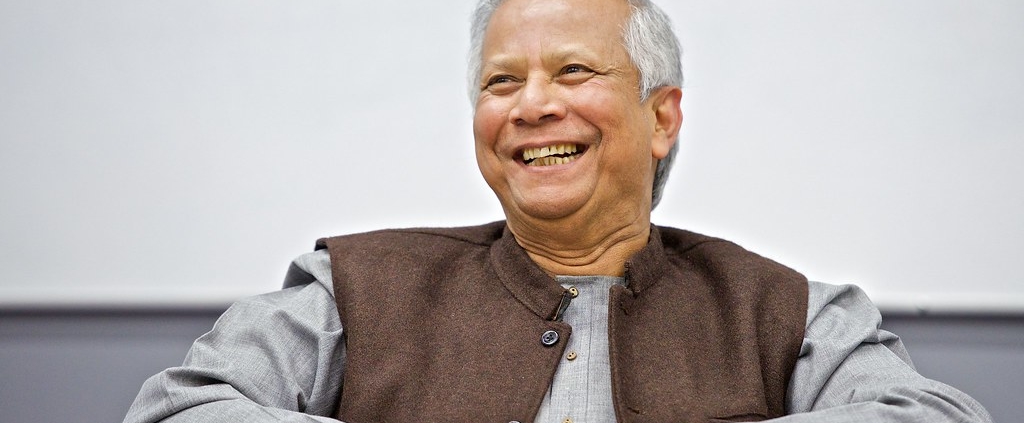Muhammad Yunus was in Christchurch this afternoon and spoke to several hundred people. He is from Bangladesh and received the Nobel Peace Prize in 2006 for his work in microfinance and microcredit. He founded Grameen Bank (http://www.grameen.com/) which focuses on loans being given to people in villages who are too poor to receive traditional bank loans.
He told us the idea began from wanting to help local people to avoid loan sharks and he thought – “why not loan the money myself”? So he was solving an immediate problem back when he began in the 1970s. He told us that he studied how banks operate and then he purposefully tried to do the opposite. For example, banks usually required collateral for the loans they make but Grameen Bank do not. Now there are 2,600 branches throughout Bangladesh with 9 million borrowers.
He also talked about social business and the idea that this could help to solve problems while still making money. He compared this with pure charity where the money has a “one time use” as it is used and then gone compared to a social business which is sustainable. In this context he talked about how profit might not be the only incentive for people to set up a business and that there could be other incentives – such as making people happy. It would have been interesting to gain more insights about what form of social business might work best in a New Zealand context.
He finished by commenting on the fact that the top 1% of the population owns 99% of the world’s resources and that the wealthiest 8 people in the world own more than 50%. This concentration of wealth into ever fewer hands is what he sees as a great danger and there need to be new ways to combat this. HIs main theme was to work to try and reverse the way the system currently runs and what motivates it to try and address this.
The session ended with some questions although I felt at the very end like there were a lot of unanswered questions and details that would be fascinating to find out more about and explore. I was also left wondering how the ideas, which seem to have worked well in rural impoverished Bangladesh, might apply in relatively wealthy/middle class New Zealand.
It was great to hear the challenges from a Nobel Peace Prize Winner and wonderful that the event could be hosted in Christchurch – well done to the SingularityU Christchurch (which led this) and the other partner organisations: Akina Foundation, Ministry of Awesome, OHU, Te Putahi, XCHC and CCC.







